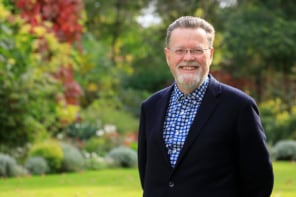Chandrika Nath is a scientific advisor for physical sciences and IT in the Parliamentary Office of Science and Technology, London, UK

How did you first get interested in physics?
It was mainly through Patrick Moore and the Open University TV programmes. Even when I was seven, I would sit in front of Open University for the whole of Saturday morning watching really dire programmes about physics and finding them fascinating. Then, when I was 10, my dad got me a telescope and I started looking at the sky and wondering about the size of the universe. And finally, I didn’t want to become a medical doctor like every other Indian daughter I knew.
Where did you study physics and how much did you enjoy it?
I went to Imperial College London as an undergraduate and the course was really good – loads of variety and well taught – but I didn’t enjoy the university itself that much. At the time only one in 20 students were women and being a student in central London isn’t that much fun because no-one can afford to go out and everyone lives miles apart. After graduating, I decided to take a gap year and somehow got from Mexico to Alaska in the space of one summer, mainly by hitchhiking. Then I went to teach in a school for blind children in India. I also worked at Texas Tech University in Lubbock on calorimeter design for the Superconducting Super Collider – hopefully I wasn’t responsible for its demise!
What did you do next?
I went to Oxford University to do a doctorate in particle physics and I enjoyed that university experience much more. Originally, I hadn’t wanted to go to Oxford because someone told me it was like an extension of a girls’ private school, but by that time I was 23 so it was easy enough to escape that side of things. I was based in Hamburg for a couple of years, working at the HERA accelerator and studying theoretical physics in German, which was quite an experience. I’ve completely forgotten the title of my thesis – it was something to do with instantons, though I don’t even remember what those are now.
How did your career develop from there?
In my gap year I ended up in Alaska and I decided then that one day I wanted to study ice. I had a grand plan to make my own way across the Bering Strait. Then one day I was flicking through New Scientist magazine and came across an advert for a job with the British Antarctic Survey (BAS). I didn’t expect to get it, but I did, and decided that it was an acceptable alternative to the Bering Strait. I spent four years with the BAS studying how crevasses form, including five months in the Antarctic living in a tent with three blokes. Having gone from relativistic quantum mechanics back to Newton’s laws of motion, I was intrigued to find that the macroscopic world holds as many mysteries as quarks and gluons.
How did you make the move into science communication?
At the end of my time at the BAS I did a media fellowship with Roger Highfield at the Daily Telegraph. I was vaguely thinking about becoming a journalist and then a job came up at the Parliamentary Office of Science and Technology (POST). I was intrigued by the idea of working within parliament, and it satisfied my need to not have to turn things around on really short timescales. POST’s job is to provide MPs and peers (members of the House of Lords) with balanced information on policy issues that relate to science and technology. Very few parliamentarians have a science background so they need an objective, understandable source of information to help them scrutinize government policy. My biggest piece of work to date has been a 200-page report “Assessing the risk of terrorist attacks on nuclear facilities” but I’ve also worked on reports covering military satellites, digital forensics and online privacy.
What are the main differences between working in policy and in research?
They’re completely different – I don’t think there are any similarities. But if you’ve been a researcher, you apply a lot of the skills you already have, so in a way you make the similarities. All the years of training as a scientist, documenting my work thoroughly and thinking logically are really useful. When you’re doing science, you are always wondering what else there is that you haven’t thought of. You never see something as an answer, just something that raises more questions. I think that pedantry is what makes me good at what I do now.


